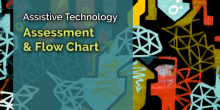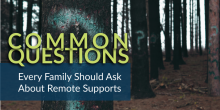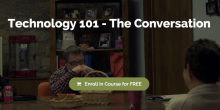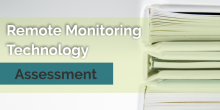
The Conversation
Implementing technology supports into a care plan starts with a conversation. Safety, security, independence level and desire are all components care teams take into consideration when assessing what resources are available for an individual. Technology is not a one-size-fits-all solution; but through conversations between individuals, family members, providers, and case managers, a plan can be put in place to help increase independence, promote self-sufficiency, and achieve success for all parties involved.
Select below to start the conversation from the perspective that matches your interests.

Providers
Learn the keys to a successful conversation and be ready to answer common questions from self-advocates, family members, and case managers.

Family & Self-Advocates
Learn how to start the conversation with case managers and providers to identify goals and outcomes technology might be able to assist with.

Case Managers
Begin the conversation with self-advocates, family, and providers to find the right mix of technology uses available to implement in care plans.











